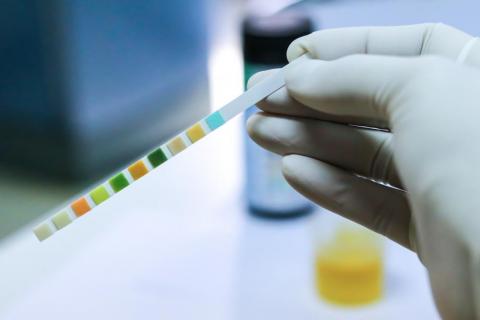
"For the next installment in this diabetes series, I would like to discuss the importance of lab monitoring. I will break it up between blood and urine tests because they can tell us different things about how your diabetes is affecting your body. However, both the blood and urine tests are important, and as you might imagine, they are related to how well your diabetes is controlled. First, the urine test, called a microalbumin test, measures the amount of protein in urine. The kidneys are basically filters, and work at both getting rid of things (toxins), and holding onto things (protein, electrolytes, etc.). The first sign of kidney damage is often losing too much protein in your urine, and the microalbumin test should be checked at least once a year to monitor if that is happening. One of the reasons it is important to know the results of this test is because we have an effective treatment. These are medicines called ACE inhibitors, or the closely related medicines called ARBs (Angiotensin Receptor Blockers). These medicines are so effective at treating diabetic kidney disease (diabetic nephropathy) that the current national recommendations from every health care entity (American Diabetes Association, American Medical Association, American College of Physicians, and many others) is to start a low dose of one of these medicines to prevent the damage from happening in the first place. Because the damage to the kidneys is proportional to the blood sugar control over time, the damage can still occur and the dose of the ACE or ARB could be increased to counteract the damage that has been done. Getting your kidneys checked with a microalbumin test at least once a year is a critical part of your care overall and provides information about potential kidney damage before a blood test might show any abnormality at all. In the next post, we will run through some of the blood tests that should be done on any diabetic at least once a year, so check back next week."
- Log in to post comments

